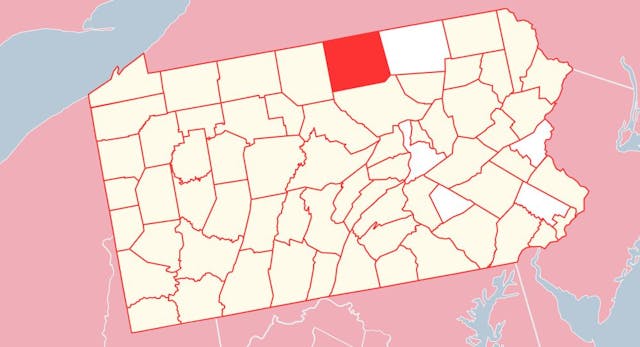Rehabs in Tioga
Tioga is a county situated in the state of Pennsylvania. Its main seat is Wellsboro. The history of the county dates back to 1804. The overall area is about 1,137 square miles, making it one of the largest in the state and throughout the country. Tioga is quite populous with over 41,373 residents.
The education system is developed, being a part of the state’s higher education.
The healthcare field is also developed, although like anywhere else in the country, substance addiction cases are continuing to pick up.
Substance Abuse Statistics
Together with the growth and development in Tioga, there are also major problems that threaten the residents’ well-being. The most concerning of them is fatal overdose cases. Pennsylvania is one of the most inflicted states, and unfortunately, the measures the local activities are taking have little effect. As a part of the fight against addictions, the local government is showing its undivided support to Tioga County rehabs, hoping that the joint efforts will generate better results.
Tioga County Rehab Programs
Every rehab offers its scope of services and approaches. However, those services are still created on the two main programs that are used countrywide. Inpatient and outpatient treatment programs are designed to be helpful for all types of addictions – from the most severe ones to lighter and newer cases.
When a person steps into rehab, the first thing the team of professionals does is find the most suitable option for rehab care. Based on many factors, specialists choose the program, and from then on the recovery journey starts.
Besides the mentioned two programs, detox and aftercare are also important parts of the treatment.
Detox
Some people think that detox is also possible to carry in home conditions. Yet, detox is one of the most dangerous and hardest parts of treatment. Thus, it requires guidance and professional support. Treating it lightly might put the person’s life in danger.
Detox is also extremely important. It helps the person to get rid of the negative impact and toxins accumulated in the body. Only after the procedure, the person can pass to the main treatment stage.
Inpatient and Outpatient Rehabs
For patients the choices centers offer may be quite confusing. They are often not aware of the differences the treatment types suggest, and without proper guidance, they can make a wrong choice. This is why, the professional team is also responsible for determining the right program, taking into account a large number of facts, such as health condition, substance abuse history, etc.
If the person comes with serious addiction problems that already have years of history and deeper roots, specialists will suggest residential or inpatient care. Practice shows that for severe cases this is the only effective solution. It can be depressing and tough, requiring full-time engagement and concentration, but the results will pay off later.
Outpatient care is not that demanding. It enables people to continue their normal lifestyle, only with slight alterations. Several hours a day are enough to have a positive result in the end. Besides, the program is also not so lengthy, lasting a month or a little longer. Inpatient help, on the other hand, lasts much longer, offering 30, 60, and 90-day options respectively.
Aftercare in Tioga County
Different centers develops various aftercare services that will help patients stabilize the results of the treatment. Aftercare is more important than many give a credit to it. It is the last stage of the recovery journey. Some of the most common examples of aftercare are psychological counseling, different therapies (both one-on-one and group), and many other courses that may also include the family members of the addict.
Addiction Treatment Costs
Costs are almost the same from state to state. In Pennsylvania, too, insurance doesn’t often cover the costs. One of the hardest parts of receiving help is the expenses that come with them.
Outpatient care is easier, with more affordable costs, starting from $3,500 to $5,000. The residential option is far more costly, ranging up to $20,000 for a month of support.

